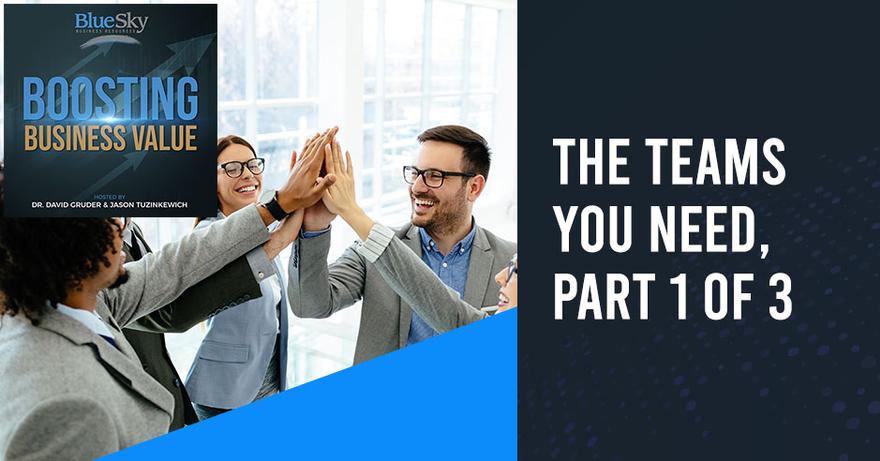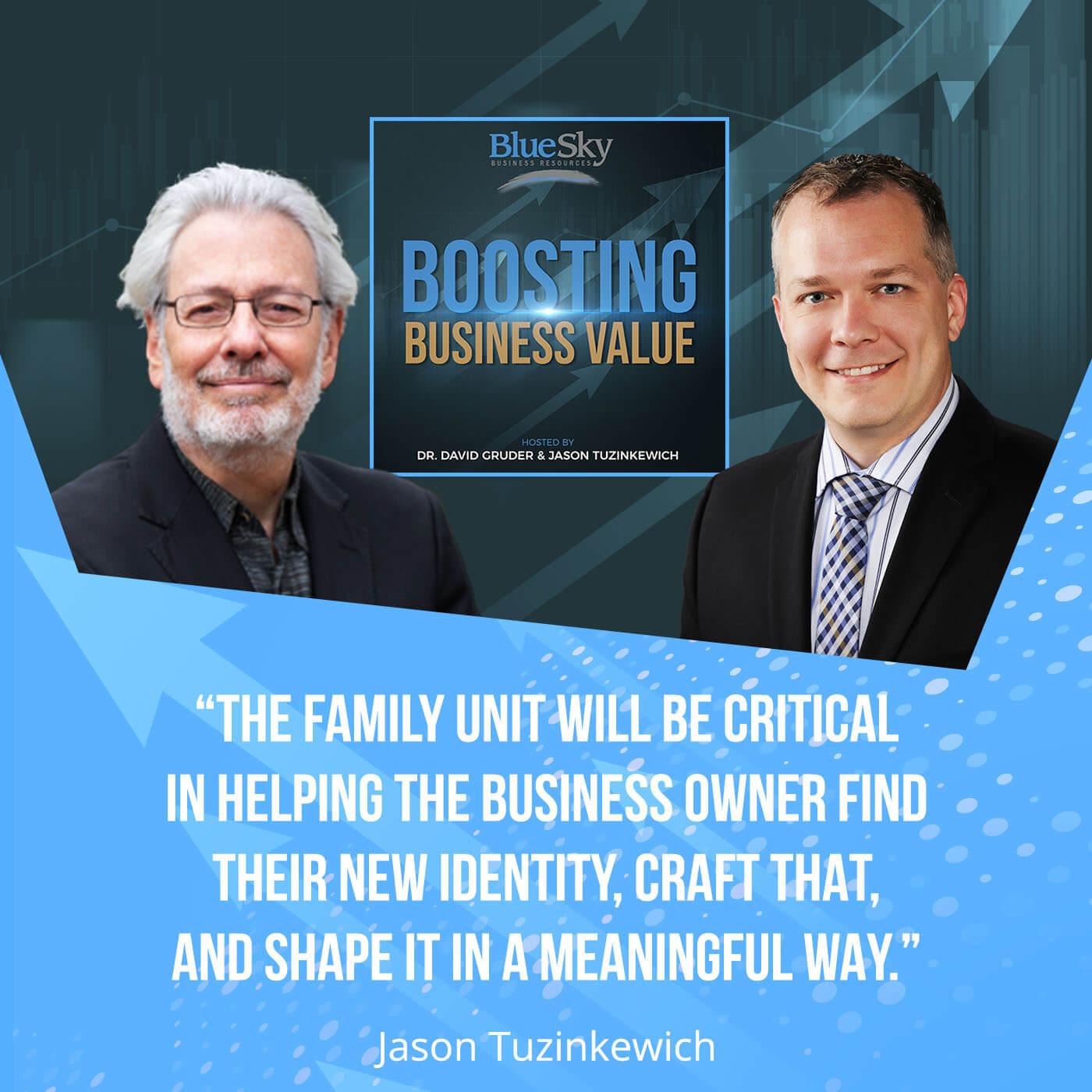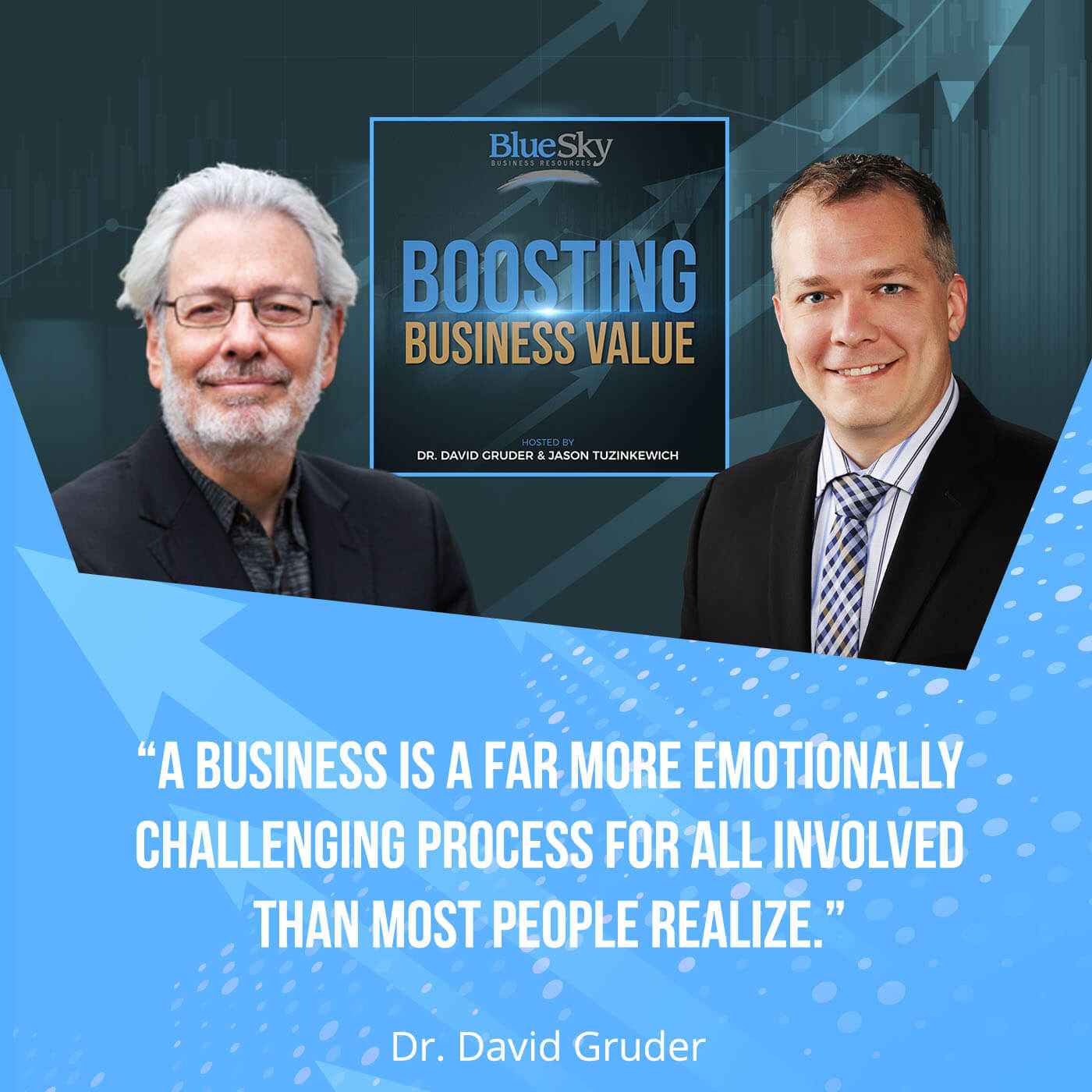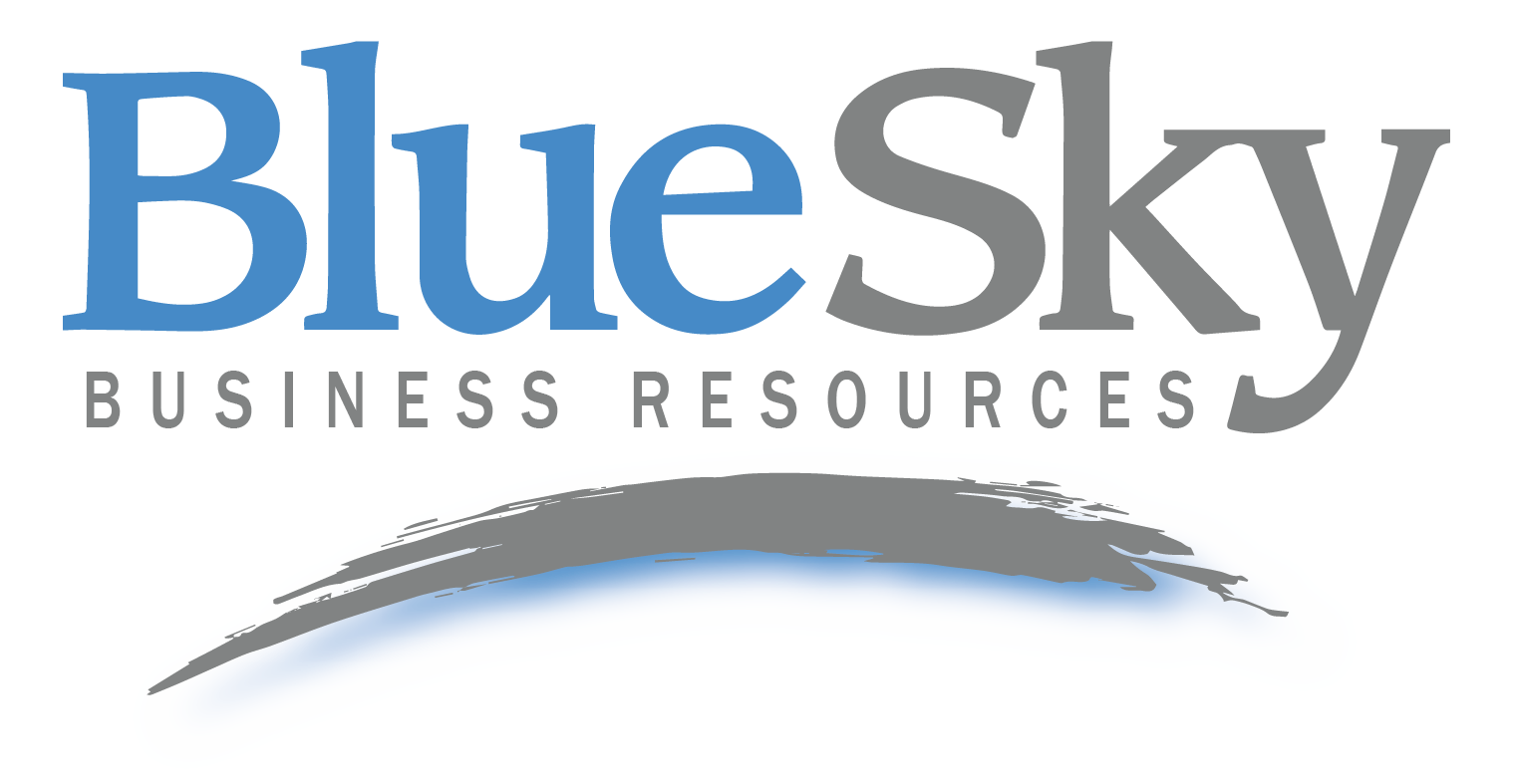Ep. 08 - The Teams You Need, Part 1 Of 3

There are three core teams that help businesses flourish:
- Your executive team
- Your trusted advisors team
- Your life after ownership team
In this three-part series, we will devote an episode to each of these teams. Together with Dr. David Gruder and Jason Tuzinkewich, this episode will explore the three big challenges that effective "Life After Ownership" teams face and share the best strategies for addressing them well—starting by being carefully selective of your team. Join us and understand the significance of a "Life After Ownership" team to ensure your business will continue to thrive for years to come.
---
Watch the episode here
Listen to the podcast here
The Teams You Need, Part 1 Of 3
Your "Life After Ownership" Team
We're going to be doing the first of a three-part series on the three teams that business owners need in order to scale and ultimately exit their businesses. Those three teams are the Life After Ownership Team, the Trusted Advisors Team, and the Executive Team. That's the sequence in which we'll do this three-part series. In this episode, we are going to be focusing on the Life After Ownership Team.
If it's not clear to you at the front end what that team is about and who it includes, it will become very clear very shortly. First, for those of you who are new to this show, I’m Dr. David Gruder, the Business Life Cycle Exit Planning and Post-Acquisition Psychologist for Blue Sky Business Resources. With me is the wonderful, illustrious co-host, Jason Tuzinkewich, Blue Sky’s Chief Operations Officer. Take it away, Jason.
It's great to be with you again. This is a great topic. I’m very excited about this three-part series. I think that we’ll have a lot of fun discussing the elements of it and hopefully, our readers will learn a lot. Getting right into it, we always like to start with the challenges that you have to face as you’re embarking on the journey. For us this time, it’s embarking on the journey of preparing for life after ownership and building that team.
The first thing that always pops up, the number one challenge in this particular environment, will always be with the owner. The fact that the owner’s entire lifestyle as well as their identity is going to transform. As an owner, if you don't go into this transformation with a very clear picture of what you'd like to look like, feel like, and be doing on the other side, it's going to be a hard road for everybody involved. That's the number one greatest challenge involved whenever we talk about life after.
The business owner is the key member of the Life After Ownership team. That team also includes the owner's family, however. This is where things start to get even juicier because family members have their own fears around life after ownership. Those fears are about how their relationship with the owner and with each other will be impacted after the owner leaves the business or leaves the piloting at the Helm Row role in the business. Even if they're remaining for a period of time as a consultant after acquisition.
What that leads to is a power dynamic that is a big challenge. In the team, that's the life after ownership team. That power dynamic is both personal and financial because when an owner shifts out of being the family's provider or the family manager or whatever they're used to doing because owners are used to being in charge.
It's a necessary thing for an owner to know how to be in charge because they're the owner. When they're shifting out of that role, which very often they've been in that in charge role for a long period of time, shifting gears out of that is a real challenge. Not just for the business owner but for the business owner’s family members being in that take-charge position.
Now they're having some decisions to make and some moving forward plans to enact that involve all of them where the business owner is part of a collaborative team. There are also financial power dynamics around what you do in terms of decisions and how you live off of the annuities that come from the nest egg that's been created when the business has been sold. It’s where everyone is now in a family management role around what the nest egg is used for or the proceeds of the nest egg is used for and how to do that well.
We can't understate how important this change in power dynamics is for the entire family. That entire family doesn't have to just be the blood relatives but it's all the people that are stakeholders in this group's life. You brought up a great point about the owner being the manager of life. A lot of times, we see the opposite too. When the owner is focused on their business, it's another member of the family that is managing the family dynamic.
When the owner gets out of running that business, they want something else to run. Now they try to slip into continuing to be the alpha leader but now in a family that they were never the manager or health leader for before and how do you negotiate that gracefully? There are a lot of different sides and considerations and every case is unique. It's something that we don't see enough business owners contemplating before they retire is, how is the family going to run?
I'm glad you illuminated that variation.
How is the change in the way that money comes in going to affect our plan? If I'm not working, am I eating more? Am I spending more time going out and having fun with the family? Am I spending more money because I'm not working and earning money? That gets us into our planning portion of the challenges, which is there's a lot that goes into smoothly transitioning any lifestyle but especially transitioning a lifestyle from being an owner-operator of a business to being retired or whatever the next phase looks like.
This is a drastic change. This is bigger than moving out of the house and going to college. Think about all the planning and preparation that goes into preparing your child to go to college. This is a much bigger deal. One of the things is building a business is an investment in your retirement. At the end of the day, you're building a business so that you have the equity in that business from which you can retire and live out your post-ownership dreams. When you get that large lump sum of money at the closing table, all kinds of people are going to be there with their hands out.
At the end of the day, you're building a business so that you have the equity in that business from which you can retire and live out your host ownership dreams.
The tax man wants a piece. The legal and advisory teams that helped get that deal closed want a piece and whatever is left is yours to live with. First off, how do you protect it so that those pieces that are taken out by the other parties are as small as humanly possible? Secondly, what do you do with a great big bag of money? You could put it in a vault and swim in it like the old duck cartoon or you can start to invest it.
There are a lot of different options. I don't even know half of them and this is what I do for a living. Is investing in a life insurance plan pertinent for you? Is setting up a trust pertinent? Are you going to look to give some money to philanthropy? How much money and wealth do you want to pass on to your subsequent generations? How much do you need? Not to live the lifestyle that you've been living as a business owner but to live the lifestyle you plan to live as a person who's no longer a business owner.
Are you going to travel more? That costs a lot of money. Are you going to buy a big boat? Boats are money pits. There are a lot of different things that you could do with your money and they all changed the dynamics of how much liquidity you need and how much long-term savings you need. The big challenge is first, wrapping your brain around all of these options. Secondly, start to define which options are best for you and how you diversify your portfolio to satisfy your goals.
For those of you who are reading this episode, if what Jason is talking about is somewhat new to you, you've undoubtedly heard the term wealth preservation and wealth management. That's the broader category that Jason is so beautifully unpacking the particulars of, so thank you.
The interesting thing is that, as I said, this is part of what I do professionally. It's part of the world that you live in professionally but your advisory team is going to be 6, 7, or more experts in different fields. Depending on 1) How big is that check that you're going to plan to get and 2) How diversified are your plans? This is where we start getting into.
There are experts that deal with trusts and insurance issues, especially financial management insurance issues. There are other wealth advisors that deal with the market. Starting to understand once you know what you want then we can start to determine what seats are there to fill with experts on your life after exit team.
Indeed. There are also financial master planning experts who are not the ones who you would buy your wealth preservation instruments through but who will help you architect the master plan that identifies what the elements would be and therefore, who the advisors will be. Those are financial fiduciaries.
It’s such a fun word to say.
I know, isn't it? Jason, you and I are big believers in the fiduciary standard around financial planning and financial management.
That's a fact. It's so critical.
In order to address these challenges, we're going to go a little deeper into what's involved in creating an effective life after the ownership team and what's causing the challenges that we outlined. From the owner's perspective, if you're an owner, you know that you've built a large part of your identity. If you've been with your company and building it for a while, either by design or by momentum, you have ended up building a large part of your identity around your business and around being an executive and owner. A decision maker, an alpha, as you were saying, Jason.
What Jason and I find that owners very often don't know is how to craft a truly invigorating, purpose-driven next life chapter after exiting the business. What makes that important is that without that clarity and we've seen this happen in owners after they've sold the business. They'll go down the tubes because of a lack of that planning.
When they don't do that kind of planning and they don't have that clarity, owners are almost guaranteed to sabotage not only their retirement but long before retirement. They are prone to sabotaging the exit process itself, where you'll often unconsciously things to undermine the M&A process because they are running from it. They're operating from a deep level of fear because they don't know who they'll be without the business. This is a crucial building block for paving the way. Not only for a successful un-sabotaged exit process but for enthusiastically stepping into a passion and purpose-driven life post-exit.
I couldn't have said it better. Everybody needs a reason to get out of bed. For a business owner, that business, their team, the vision of what they're building, that's been their reason to get out of bed for so long. Now they have to come up with a new reason, that's tough. For those of you who have been reading, thank you very much. You'll know that the statistics on successful M&A transactions are not good.
Everybody needs a reason to get out of bed.
Part of the whole point of the show is to change the game, to improve your odds as a business owner of feeding these statistics and having a successful outcome, closing an M&A transaction, and living out your best life after the owner. That's important but in those bad statistics, the number one reason M&A transactions fail is ownership sabotage.
When they can't, whether or not they own this in their own mind or even verbally or they say it out loud, there's a part in the back of their brain that can't wrap their arms around not owning this business. They start to find all the reasons why the buyer can't run it well or they're going to kill the staff. They're going to poop all over my baby and I'm not going to let them do that then you close ranks and kill the deal.
The ownership thing is a big deal. It's something that is a continuing thread in everything that we talk about in M&A transactions and in boosting business value. This is a piece that is so nuanced and so frequently neglected. The reality is the family is going to play a huge role in achieving a successful transition. One of the things that they don't understand at the onset is how much the owner is going to need them in order to make this transition.
The way that I see most family units and groups of close-knit friends that are stakeholders in a business owner's life is that they look at the business owner as somebody who is in charge. It's their livelihood to be in charge. That's all changing in this life after ownership. The family unit will be critical in helping the owner find his or her new identity, craft that, and shape it in a meaningful way.

I don't see too many families that truly embrace the power and the role that they can play in making this successful. There are also all of the other dynamic issues. In business, I always say, “If you don't articulate your expectations, put them down in writing and mutually agree on them,” then both parties will walk away feeling taken advantage of. It's not any different with families.
Whether or not a child wants to take over the business of their parent, they still have some idea of what they're going to do with the value that business represents. There are some entitlement issues that need to get out on the table. There are some expectations that the family will have and they should have a voice. Not only as a supporting role in helping the owner transition but they should have a voice in defining what that transition looks like so that everybody involved, their stakeholders for a reason.
That stake needs to be recognized and accredited through discussion. That's something that I don't think a lot of families understand. This is to borrow some words from the great Dr. Gruder. This is audacious planning. This is a higher-level conversation that has to happen in order to make it a smooth transition and successful for everyone involved.
To underline one of the pieces that you were describing so well, there's an old saying, “We're only as sick as our secrets.” Families are only as sick as their secrets and the most insidious secrets are the type of secrets that are called an open secret. What an open secret is, the elephant in the room that everyone knows is there but nobody is talking about. Nobody is addressing it directly. They're murmuring behind each other's backs about that.
Everyone knows about the secret but nobody is dealing with it straightforwardly head-on. The biggest challenge to creating a fully functional, healthy, thriving team in the life after ownership team is ferreting out every one of those elephants in the room and dealing with them in a very direct, compassionate way. I don't mean clobbering each other over the head but non-avoidant way.
What that leads to is the planning piece of these three pieces that we're focusing on in this episode, the owner of the family and the planning. On the planning level, the decision needs to be made about who is going to be the life-after exit teams, strategic and tactical advisors, and facilitators. There is a wide range to choose from. As Jason said before, this isn't a cookie-cutter thing. These decisions are made in a customized family-by-family way but there have to be decisions made about the team. Both strategic advisors and tactical advisors. Oftentimes, a facilitator as well helps these difficult discussions among the family to happen in good ways.
Along those lines of planning, the question that needs to be addressed is, what can you reasonably expect to accomplish as the family team? A business owner might know some of the tactical pieces but outcome mapping and long-term master planning are off the map of most business owners and virtually all family, post-exit, teams. That master planning expertise is going to become a cornerstone of the expertise that your team is going to use.
Where that becomes even more important is legacy and cross-generational wealth transmission planning. Master planning is building long-term plans for a business or the transmission of intergenerational wealth. I'm trained in master planning where you're building 50 to 100-year plans. Ideally, out of which the near-term strategic plan grows for businesses but there are financial services professionals who literally build 100 to 300-year master plans for the transmission of intergenerational wealth.
Something to be aware of is that those experts exist and when you're talking about a sizable amount of wealth that's going to end up getting transmitted from one generation to the next. There needs to be a financial master planning expert as part of that planning team. The last piece of the planning part that we want to touch on is, how will your business become valuable enough as the owner to support whatever your life after exit team's goals turn out to be.
That means that you're not waiting until the last minute to assemble your life after exit team because your life after exit team's goals are going to inform how valuable or how much your business needs to scale in order to meet your and your family's goals. This leads into the Trusted Advisor Team Assembly, which as we said at the top of this episode, we'll cover in part 2 of this 3-part teams series. We'll cover that Trusted Advisor team in the next episode.

It's so great. I'm glad that you brought that up because these teams don't exist in a vacuum. They're part of a Venn diagram where all three of the teams that we're talking about have to coincide, work together, and overlap at different points to get information and to get guidance so that uniformly, they all drive towards the outcome that the owner and the owner's family unit are looking for.
In case you've lost track of what those three teams are since we've covered so much since the top of this episode. Let me remind you all that the three teams are the Life After Ownership Team that we're covering in this episode. The Trusted Advisors Team will cover in the next episode and the Executive Team that will cover in the episode after that.
Thanks for bringing that back around for us. It's so important and you touched on the point about this life after exit team can't be formed after the sale of the business. This is a team that needs to exist for a while. Again, at the end of the day, they're the ones who define the destination. This is the team that defines the great beyond after ownership. The other teams that we'll be talking about are the ones that make that possible. You can't make something possible if you don't know what you're driving towards. It's important that there's overlap in time as well as in talent on these teams. I think that's going to allow us to segue into what we're looking for in a solution and what the roadmap to success looks like. Doctor, will you give a step one on that?
We've got three steps that we want to offer to you. Jason, you've already done a magnificent job of setting up the first step, which is for the Life After Exit Team. Meaning you as the owner and your family then as you get clear, the trusted advisors that'll assist you with this. You've got to open up an ongoing dialogue for at least 1 to 3 years before you're looking to start the exit process. Everything needs to be put on the table like we were saying earlier. All of the elephants in the room, open secrets, concerns, fears, hopes, dreams, audacity, and everything has to be put on the table.
The family’s and stakeholders’ expectations need to become very clear. Not only the owner's expectations but the expectations of the others that are involved in the life after exit team. The elephants in the room, as mentioned earlier, need to be brought out into the open and resolved. A lot of these things are pretty touchy topics and that's okay because that's part of being human.
What's not okay is if you've got a family that has a bunch of touchy topics that need to be addressed and don't have a solid track record of addressing those in good ways without an external facilitator. That constitutes the vast majority of families, frankly. These conversations usually require a skilled facilitator who’s not part of the family and who will likely be the overall facilitator for the life after exit team throughout the implementation process by implementing the life after exit plan.
The first step in this needs to happen prior to bringing in the rest of the team's advisors. In other words, the skilled facilitator is first going to work with the owner and their family to get clear about what is needed in the way of trusted advisors before the trusted advisors that are part of the life after exit team is mobilized and brought in. The reason for that is because doing that facilitation with the family is going to unveil and reveal the specific requirements that the rest of the advisors are going to need to be able to fulfill.
You've basically filled the first 1 or 2 seats because it could be that there's a facilitator that can deal with the family dynamics and another facilitator that can deal with bringing in the business realities to that conversation. That could be 1 or 2 seats that we've filled. One of the questions I always like to ask when I'm dealing with these types of situations where there are probably a lot of unspoken realities is, “What is it that you are sure is going to be an outcome of this that has you frustrated?”
It takes people a little bit off balance but it gets that out in the room in a less accusatory way because then we can start breaking that down and saying, “If that's got you frustrated, does it have to be an outcome?” Getting those conversations open and getting those to happen is so important. The next step, once you've got all that information and you've defined a great outcome, you can start talking about what will it take to achieve that outcome. That's where you can bring in the other advisors and build out your team. Depending on the specific needs, what it takes to achieve the outcome?
That's step two, start to identify, select and build out your advisory team. Do you need a trust attorney or do you need a trustee? It's more of a financial advisor role. Do you need an insurance person? Do you need a wealth manager that does generational planning? Do you need a liaison to the philanthropic world? All of those different things may or may not be members of your life after ownership team but only after you've defined what that looks like. You start to determine how many chairs are there going to be at this table and who's sitting in each one.
Jason, I would be a co-facilitator in assembling that initial family team with you any day of the week.
That'd be fun.
I know. Step three is once you've got the plan put together and the advisory team identified and selected then what you're going to be doing from there forward through time is monitoring inadvertent sabotage of the sale by the owner because it's usually inadvertent and unconscious when it happens. Inadvertent sabotage by family members and of the sale by the executive team. The purpose of monitoring that inadvertent unintended sabotage is to spot it early and clean it up quickly. It doesn't have a chance to turn into damage that you have to do a bunch of damage control and retracing steps in order to clean up.
Step three serves a dual role. On one hand, it's the requirement of any good strategic implementation. The other part of it that is unsaid but equally important is giving this process KPIs and metrics to track puts the owner back in the comfort zone. It makes that transition a little less scary when the owner gets to manage something in a way that they probably manage their business. It serves a dual purpose and it's helpful. With that said, I can't believe we've covered all this ground and we've already blown a half hour. Dr. G, let's take it away. Bring it home for us with the first of the key takeaways.
The first takeaway is exiting a business is a far more emotionally challenging process for all involved than most people realize.

It's funny because until you've gone through it, you have no idea but it is the most emotionally charged event that a business owner will probably ever experience. Following up on that emotion, there are significant financial, personal, and familial consequences to failing to plan effectively. The fact that if you don't plan for the cash act closing to be tax mitigated in an appropriate way, you're likely to give up 50% of the cash act closing right off the bat. That's a big deal but it gets worse because there are people involved.
Until you've gone through it, you’ll have no idea.
As we said, there's a lot of emotion here. I've seen families fall apart because of a bad or failure to plan for what life after an exit looks like. I've seen children disenfranchised from their families because they weren't heard and their expectations were not met. It causes turmoil. I've seen owners not only have extreme seller’s remorse and this almost zombie-like state of not feeling like they have an identity. I've seen this precipitate major health consequences up to and including early death because there wasn’t that purpose anymore. The consequences of failure to plan are extraordinary and it's not just going to hit your pocket but it's going to hit your people.
The next takeaway is doing this well. Being a high functioning, highly effective, and highly collaborative. Life after exit team requires outstanding facilitation or co-facilitation between a people expert, a psychologist-type expert, and a logistics financial expert. Remember that if you try to do this by yourselves as an owner and a family and you get log jammed, don't spend a moment feeling guilty, ashamed, or like a failure. Know that if you get log jammed, you are in the majority rather than in the minority. Instead of bemoaning that fact or trying to fix it on your own, get the required outstanding facilitation.
Wrapping all of these things up and putting a nice little bow on it is reinforcing the fact this takes courage. This is hard work. Every single member of the team will have to support the other members of the team at some point or another. The fact that it's hard in many ways is proof positive that it's worth doing. Give yourself a good talking too in the mirror, let's go get this team going, and make the right plans.
Our invitation to you has to do with the next episode in part 2 of this 3-part series the team will focus on is your advisory team. Stay tuned for that episode.
I can't wait. With that, on behalf of Dr. Gruder and myself, I want to thank you so much for joining us for this episode. Hope you had as much fun as we did. Please feel free to use the comments section in the show. Subscribe so that you don't miss an episode and we look forward to hearing from you because it's your feedback that's going to shape the future of Boosting Business Value. On that note, thank you very much and we wish you a good day.


0 comments
Leave a comment
Please log in or register to post a comment